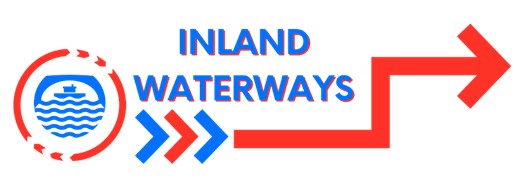- Themen
- Aus und Weiterbildung
- Föderation
- Fürsorge
- Gemeinschaft
- Geschichte
- Gesetz
- Gesundheit und Sicherheit
- Gleichberechtigung
- Grossbritannien
- Industriell
- International
- Kampagnenarbeit
- Karrieren
- Mitglieder bei der Arbeit
- News von Nautilus
- Niederlande
- Organisieren
- Rechtsansprüche
- Regierung
- Rivercruise
- Schweiz
- Technologie
- Ukraine conflict
- Umwelt

Nautilus arbeitet im Rahmen der ETF (European Transport Workers Federation) mit an der Neugestaltung zukünftiger Bemannungsregeln (Crewing) für die Binnenschifffahrt. Es handelt sich um einen langjährigen Prozess zur Modernisierung und Harmonisierung der Standards. Organisiert wird der Prozess von CESNI, ein Ausschuss innerhalb der ZKR in Strassburg. Hierin vertreten sind Arbeitgeberverbände, ETF sowie die VertreterInnen der Regierungen der Rheinanliegerstaaten.
Am 14 Dezember 2022 fand eine Online-Konsultation mit 90 TeilnehmerInnen statt. Auch Nautilus Schweiz war seitens des Büros sowie mit zwei Mitgliedern anwesend.
Folgende unverbindliche Ergebnisse „Key Takeaways“ sind hierzu einsehbar unter www.cesni.eu/en/actualites/key-takeaways-from-the-sector-consultation-event-on-future-european-manning-standards/
Allerdings ist das Dokument sehr umfangreich und viele Fragen der Online-Befragung sowie die Ergebnisse der jeweiligen Online-Abstimmungen sind relativ vage und teilweise verwirrend.
Dankenswerterweise hat die ETF eine Zusammenfassung des Diskussionstandes sowie der anstehenden Schritte erstellt, die wir hiermit veröffentlichen:

State of play: IWT crewing negotiations 22 March 2023
Please find below an overview of the interim discussions/initiatives on the ongoing crewing negotiations.
- Sector Consultation Event
- Key take aways have been finalised
- A press release will be issued shortly recapping the main conclusions
- Enforcement in case of One person vessel operation
ETF insisted on more stringent controls & enforcement in case of one person vessel operation. ETF introduced a written position = CESNI/QP/Crew (23) 29 highlighting the additional safety risks when working alone justifying an increased controlling capacity.
- One Vessel Operation criteria
CESNI Secretariat produced a revised draft on the OVO-criteria CESNI/QP/Crew (23) 28. Netherlands oppose city tour boats to fall under the scope of OVO. The boatmasters’ have a limited/specific certificate for the stretch they are sailing on.
ETF can agree with the document IF the additional controlling capacity (enforcement see above) is adopted.
- Helmsman with boatmaster qualification
EBU/ESO produced a position paper CESNI/QP/Crew (23) 31 on the Helmsman with boatmasters’ certificate. This is a function that stems from the past and is no longer fit for purpose. A Helmsman with boatmasters’ certificate (patent) is a boatmaster. A Helsman without certificate (patent) refers to a qualified & experienced person.
- Suggest to delete the function Helmsman with patent.
- Proposals for more flexibility
EBU/ESO produced a position paper in which they ask for more flexibility:
- Temporary extension of the operating modes (operating modes on a basic reference period of 7 days rather than 24 hours):
- A1 + 2 hours = 18 hours a day but no more than 98 (7 x 14)
- A2 + 2 hours = 20 hours a day but no more than 126 (7x18)
- Temporary change of operating mode – unexpected prolongation so from A to B mode without additional crew
- Extension of operating mode in case of higher qualified crew – if all crew has higher qualification (all boatmasters) operating time extended to 18 hours – reference period of 7 days.
- Replacement by higher qualifications:
- Crew member higher qualifications = 2 crew members lower qualifications
- Helmsman = 2 boatman or 1 boatman + deckhand
- Able boatman = two deckhands or deckhand + apprentice
- Flexible integration of apprentices
- Not replace when going to school
- If to be replaced = by deckhand
- To be discussed when tables have been completed.
- Digital working & resting time registration
Social Partners had an online meeting 15 March to discuss the conditions for digital working & resting time registration. Good progress was made – EBU/ESO agree in principle, as long as it is not a big brother scenario. ETF sent draft conclusions to EBU/ESO for final comments.
- Passenger vessels
German delegation will provide written input on safety personnel on board. In principle a system/rule is to be defined to calculate the number of safety personnel in relation to the number of passengers on board.
Definitions on who is considered as safety personnel? Nautical staff – Hotel staff – additional staff?
- Classification based on length
Sector Consultation decided to go for 3 categories based on length:
- < 86m
- 86 to 110m
- > 110m
Netherlands in favour of keeping 5 present categories rather than condensed setting of 3.
EBU/ESO now come with a proposal whereby they want to also consider the width of the vessel and not only the length. The +110m category would be split into 2 sub groups:
- 12m width (most vessels are 11m40 wide now)
- 14m width
Markierungen
Mehr Artikel
Wie weiter mit der Schweizer Hochseeflagge?
Bekanntlich ist die Zukunft der Schweizer Flagge auf See ungewiss. In den vergangenen Jahren blähte sich zwar die Hochseeflotte von Schweizer Eigentümergesellschaften mit einer sogennanten Offshore-Registrierung immer weiter auf.
Kompass März-April 2023
Kompass März-April 2023
